Description
45 Seeds Purple Moon Hyacinth Bean is an exotic ornamental plant that has brilliant magenta-purple hyacinth pods and lovely lavender-purple flowers! This beautiful plant is widely popular in Africa and Asian and is delicious in spicy curries and mashed with bananas. The beans and pods must be cooked with several changes of water due to the toxic presence of cyanogenic glycosides. However, the leaves may be eaten raw or cooked like spinach, the root may be boiled or baked, and the flowers may be eaten raw or steamed. Purple Moon is highly valued for its incredible health properties In parts of Africa and Asia, the leaves are crushed and sniffed to cure headaches, treat stomach troubles, increase appetite, and prepared to stimulate childbirth. Recent research found that it may neutralize influenza viruses and coronavirus (Liu, et. al 2020). Purple Moon Hyacinth plants are 3-6 feet tall, can reach up to 20 feet tall, and produce approximately 4 beans per pod. Also Known As: Hyacinth Bean, Pole Beans, Lablab Beans, Papaya Bean, jahe, Njahi, Bonavist Pea, Dolichos Bean, Seim or Sem Bean, Egyptian Kidney Bean, Indian Bean, Bai Bian Dou, Bataw, Australian Pea. We ship in 1 business day. Shipped with USPS First Class Mail. Plant Name: Hyacinth, Purple Moon (Pole) Latin Name: Lablab purpureus Days to Germinate: 5-10 Days to Harvest: 90 Germination Rate: 91% Test Date: 1/22 Growth Habit: Pole USDA Zones: 2-12, Perennial 10-12 Lifespan: Annual Country of Origin: United States Sunlight: Full Sun, Partial Shade GMO: No Pollination: Heirloom, Open-Pollinated Fungicide-Treated Seeds*: No Seeds Packed For**: 2022 *Fungicide-treated seeds protect the seedlings from diseases until they are up and growing. Do not eat treated seeds. **Seeds are freshly packed for the growing season of the year listed. Seeds are still viable beyond pack date. Store in a cool and dry location such as the refrigerator or basement to best preserve germination rates. Planting Instructions: Soil Preparation: Remove weeds, large rocks, and litter from the planting area. Till the soil 8-10 inches deep and rake several times to break up large clods. It is best to do this when the soil is dry enough to not stick to garden tools. Loosening the soil will help the plant establish strong roots. Planting: Germination is faster when seeds are soaked in water for 4 hours. In the Spring, plant beans after all danger of frost has passed. Plant pole beans in hills about 3 feet apart in the row. Space the rows about 3-5 feet apart. Place a 6-8-foot stake in the center of each hill. Plant 3-4 seeds around the stake about 1 inch deep in the soil. Planting in moist soil is best for seeds to germinate and emerge quickly. Hyacinth may start fruiting 60–65 days after sowing and continue for 90–120 days. Planting Depth: 1 inch Within-Row Spacing: 3 feet, stakes (4 beans per stake) Between-Row Spacing: 3-5 feet Care During the Season: Watering: Water the plants about once a week. Once established (2–3 months after sowing) hyacinth is quite drought tolerant. Weeding: The roots of beans grow near the soil surface. When hoeing and pulling weeds, try not to dig too deep to prevent the plant’s roots from damage. Fertilizing: Fertilizing hyacinth beans is generally not needed, unless soil is very sandy. Water the plants after fertilizing. Insecticides: Insecticides may be used to protect plants. Bt-based insecticides and sulfur are organic options. Sulfur also has fungicidal properties and helps in controlling many diseases. Before using a pesticide, read the label and always follow cautions, warnings and directions. Diseases: Diseases may be a possibility during cool, wet weather. If leaf spots or powdery mildew appear on leaves or bean pods, treat the plant with an approved fungicide. Neem oil, sulfur, and other fungicides may be used. Spray with zineb or captan if anthracnose pose problems. Harvesting: Pick young immature pods as soon as they have reached a reasonable size, when beans start to bulge in pods. at intervals of 3–4 days. For fodder, hyacinth bean is usually harvested at flowering or in the early green fruit stage. Beans are over-mature if they are tough, dry, or fading in color. Store pods at 35-40°F (2–4°C) and relative humidity of 85–90% to extend the shelf life of to a maximum of 21 days, and of shelled fresh seeds of up to 7 days. Harvesting of dry seeds may start 12–15 weeks after planting. Nutrition Facts: Hyacinth beans, boiled Amount Per 1 cup (194 g) Calories 228 % Daily Value* Total Fat 1.1 g 1% Saturated fat 0.2 g 1% Cholesterol 0 mg 0% Sodium 14 mg 0% Potassium 654 mg 18% Total Carbohydrate 40 g 13% Protein 16 g 32% Vitamin C 0% Calcium 7% Iron 49% Vitamin D 0% Vitamin B6 5% Cobalamin 0% Magnesium 39% *Percent Daily Values are based on a 2,000 calorie diet. Your daily values may be higher or lower depending on your calorie needs.

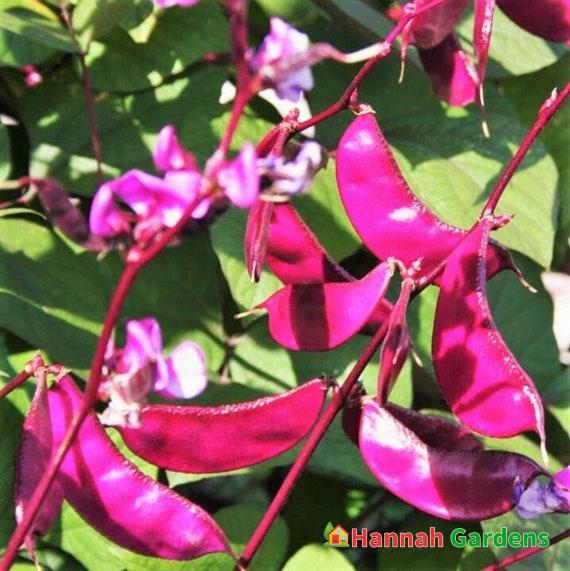
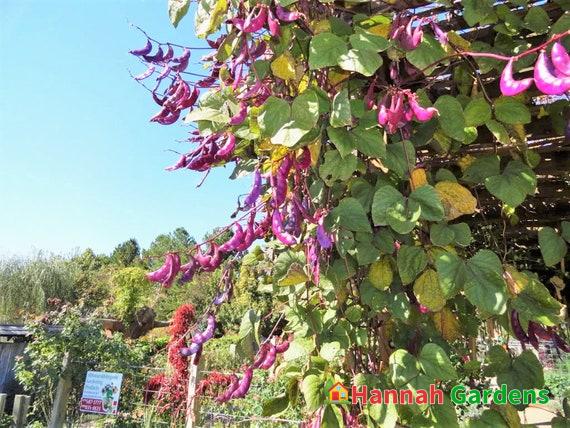
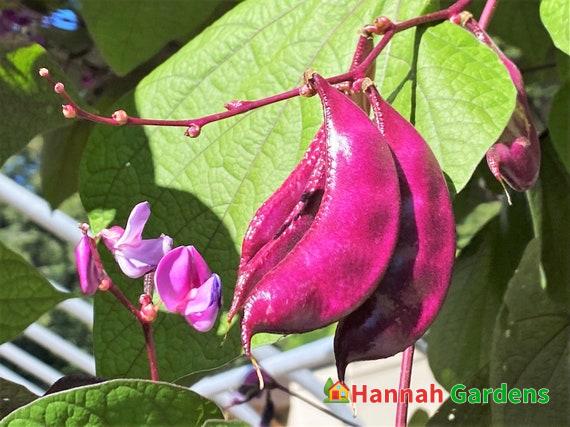
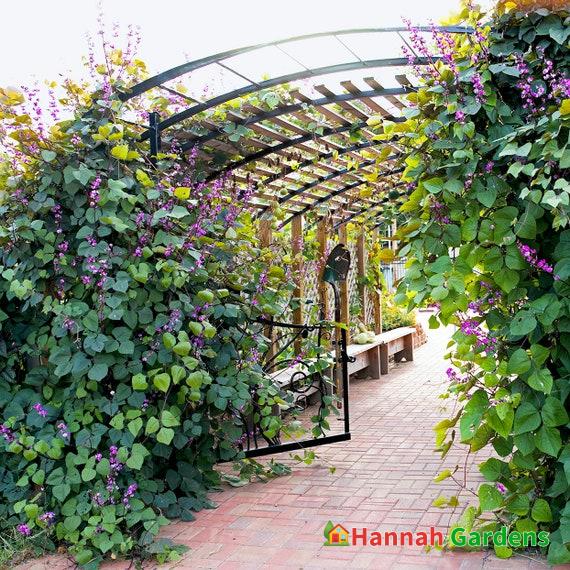
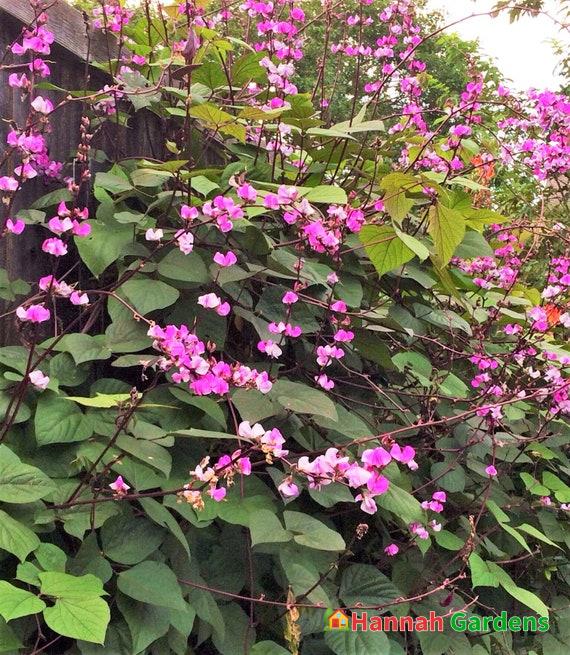
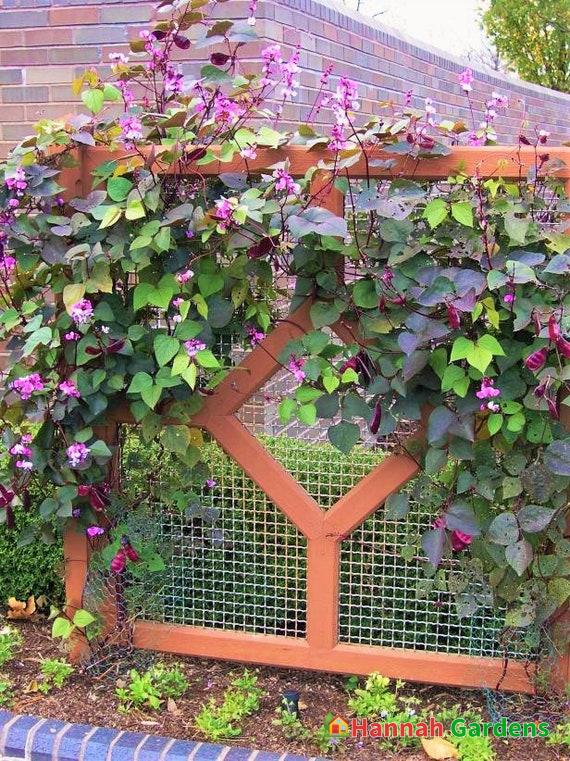
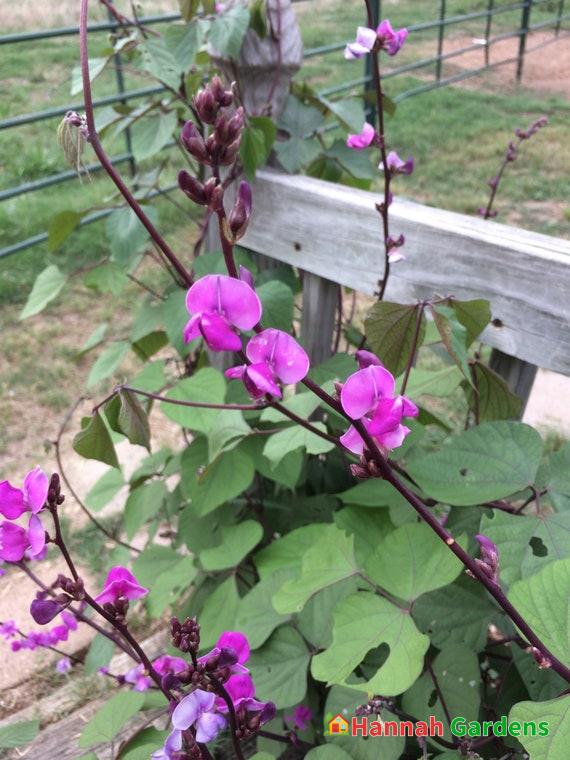
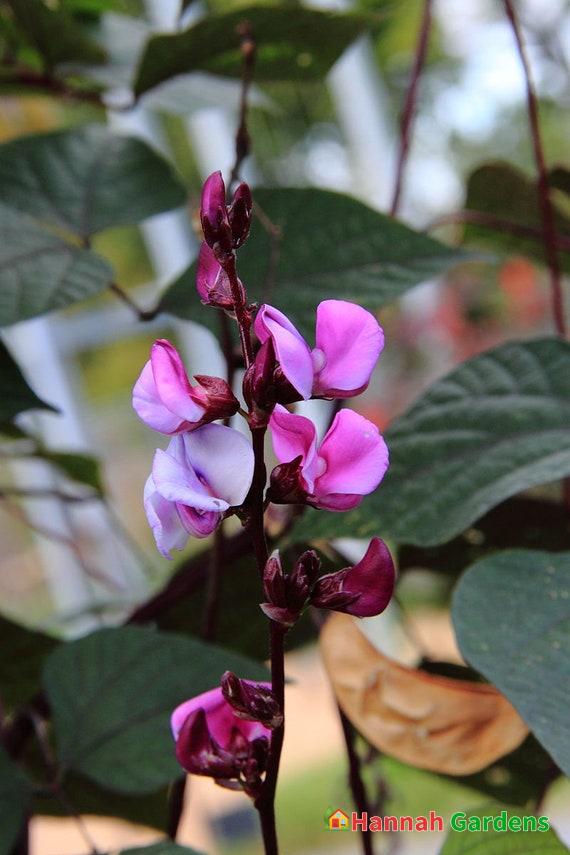
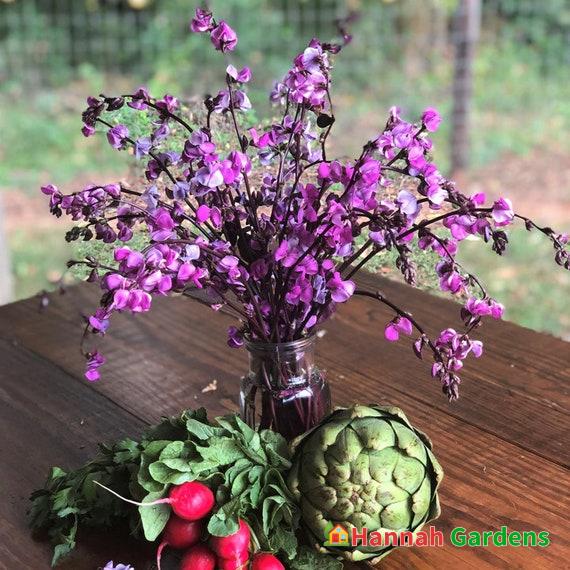
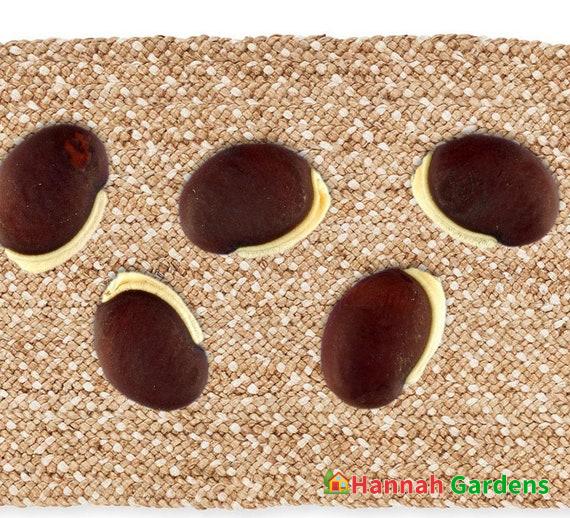
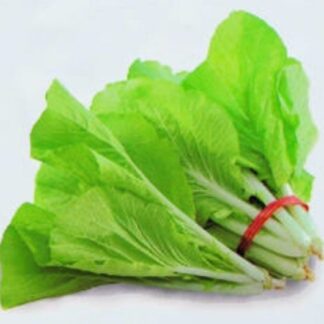
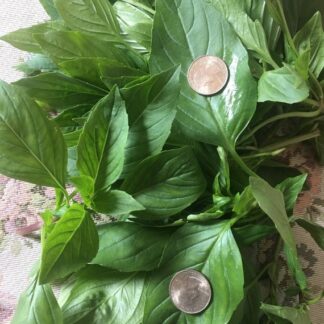
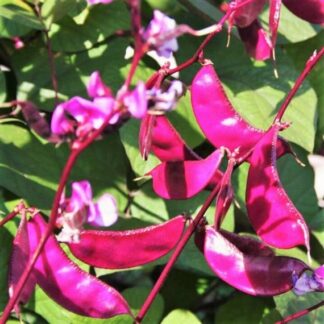
Reviews
There are no reviews yet.